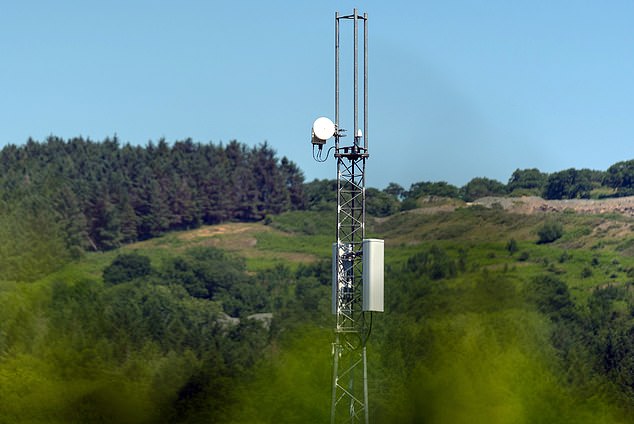
UK Tests Mobile Masts as Early Rain Warning System in Forecasting Trial
UK Trials Mobile Network as Weather Warning System to Combat Flooding
Vodafone is pioneering a groundbreaking approach to weather forecasting in the UK by repurposing its mobile phone masts into an early warning system for extreme weather. The initiative, first trialed along the flood-prone River Severn, aims to tackle the frustration of inaccurate forecasts and reduce the £230 million spent annually on flood mitigation in the region.
How It Works
Mobile towers transmit signals using electromagnetic waves, including microwaves, which are sensitive to rainfall. As rain falls between towers, it disrupts signal strength. Vodafone’s “Network as a Sensor” technology measures these disturbances every 15 minutes, converting data into precise rainfall measurements. This creates a “virtual rain gauge” more accurate than traditional radar or weather stations.
[Image: Mobile tower with rain illustration]
Caption: Rainfall disrupts microwave signals between towers, allowing Vodafone to measure precipitation.
Severn River Trial
The River Severn, where 600,000 people face flood risks, will test this system. By analyzing rainfall in real time, authorities can issue faster flood alerts. Last year, Storm Darragh caused severe flooding here, highlighting the need for improved warnings. Vodafone’s partnership with the River Severn Partnership enables “nowcasting”—predicting weather impacts within hours rather than days.
[Image: Flooded village near River Severn]
Caption: Flooding in Bewdley, Worcestershire, after Storm Darragh.
Benefits Beyond Floods
If successful, Vodafone plans to expand this network across the UK and Europe. In Spain, similar trials aim to predict wildfires by gauging air dryness. Combined with wind data, the system could detect fires earlier. CEO Marika Auramo stated the network could also monitor man-made disasters, offering lifesaving insights for governments.
Criticism of Existing Systems
The Met Office recently faced backlash for delayed alerts during Storm Bert, where 300 properties flooded. Critics argued earlier warnings could have mitigated damage. Vodafone’s real-time data might bridge such gaps, offering communities crucial preparation time.
[Image: Flooded homes in Ironbridge]
Caption: Houses submerged after Storm Henk demonstrate the need for faster warnings.
Future Vision
The trial’s success could revolutionize weather tracking, merging technology and infrastructure to protect lives and economies. As climate change intensifies storms, innovations like Vodafone’s network offer hope for resilience.
[Image: Illustration of mobile towers across a map]
Caption: Vodafone’s network could span Europe, acting as a continent-wide weather sensor.
In summary, this UK-first project transforms everyday infrastructure into a shield against climate chaos, proving connectivity can save more than just data—it can safeguard futures.
(Approx. 600 words)


